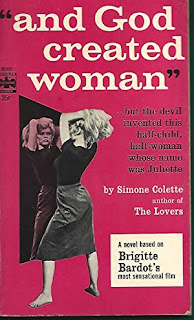I haven't "resurrected" one of my ancient reviews in a while, so I thought I might do that again. This is from very early in my reviewing career, about a novel from very late in the great Jack Vance's career.
Originally posted: 03 Jan 1997
Night Lamp, by Jack Vance
Tor, 1996, $23.95 US
ISBN: 0312856857
a review by Rich Horton
Night Lamp is Jack Vance's latest novel. Unlike his most recent work (The Chronicles of Cadwal), it appears to be a stand-alone. By and large it will be satisfying to Vance fans: it is Science Fiction in Vance's most familiar style, elegantly written, full of ironic bits, often downright funny, portraying at least three complex social structures based on intricate manners. It also shares the weaknesses of much of Vance's work: it is discursive, the Science content is notional at best (for instance, his spaceships seem basically to be automobiles that can fly in space and travel at many multiples of the speed of light without relativistic effects), and it seemed short one rewrite.
The story is that of Jaro Fath, a young boy who is found, on the remote planet of Camberwell, by Hilyer and Anthea Fath, while in the process of being beaten nearly to death by local thugs. The Faths rescue Jaro, and in the process of restoring him to health it is necessary that his memory of the first six years of his life be erased. Hilyer and Anthea take Jaro back to their home world of Gallingale, where they are somewhat unconventional (by Gallingale standards) university professors, and they raise Jaro as their son.
Jaro grows up intelligent and strong, but his life is complicated by several factors. He hears voices in his head which seem to be associated with his early life. His ambition to become a spaceman and seek out the mysteries of the lost six years of his life is thwarted as much as possible by the Faths, who fear that he will come to grief tracing his apparently violent history. And he inherits from the Faths disdain for the social system of Gallingale, which is based on the concept of "striving" up social "ledges", trying to reach clubs of higher and higher status. This disdain leads to conflict with his fellow students, and naturally seems to increase his interest in a classmate (Skirlet Hutsenreiter, a wonderful name!) who is hereditarily a Clam Muffin: that is, a member of one of the highest ranked clubs.
As Jaro comes to maturity, he slowly learns more and more about his past, and of course is eventually free to track down the mystery of his birth and how he came to be alone on Camberwell. However, as I said, the plot is discursive, and the resolutions seem too often to be the result of coincidence. Often great difficulties melt out of Jaro's way. Furthermore, the climaxes of the book (there are a few) seem muffled: and the final climax is not that of the original plot problem but of one introduced only a few tens of pages prior to the end. That said, the book is interesting to read throughout, and Jaro's story is romantic and is resolved more or less satisfactorily.
The prose style is a true joy: Vance is his inimitable self. His writing has a reputation for ornateness, but it seems to me that his sentences are in fact simple, well constructed, and often relatively short. The ornateness comes from the wonderful names (of characters, of stars and planets, of the clubs on Gallingale), and from the elegance and formality of the writing, including the dialect. Vance's work has usually, it seems to me, had an ironic edge: this book has full measure of irony, and is also often much more forthrightly funny than I remember Vance being in earlier novels (such as Emphyrio, which I reread just a few weeks ago).
There are a few rough spots: on occasion, information is imparted twice in succession, as if Vance wrote two sections separately, forgot that he had already said something, so repeated it, and didn't catch it on a rewrite. Furthermore, I have a major gripe with the blurb on the jacket flaps. Not only does it get the name of a major character completely wrong (there must have been a very late change: there is no similarity between the name in the book and that given on the jacket); but it also gives away a shocking and surprising plot turn from the middle of the book. Fortunately, as is my usual policy, I didn't read the jacket flaps until after I finished the book. (A certain once famous Amazon reviewer, I might note, clearly did her review from the jacket copy and not the book, as I had often suspected, back then!)


.jpg)



.jpg)



